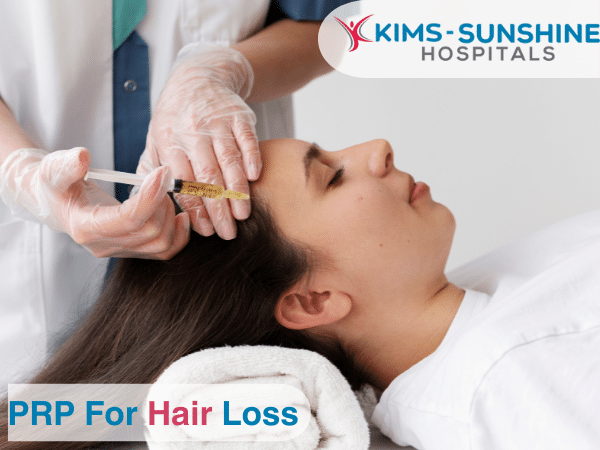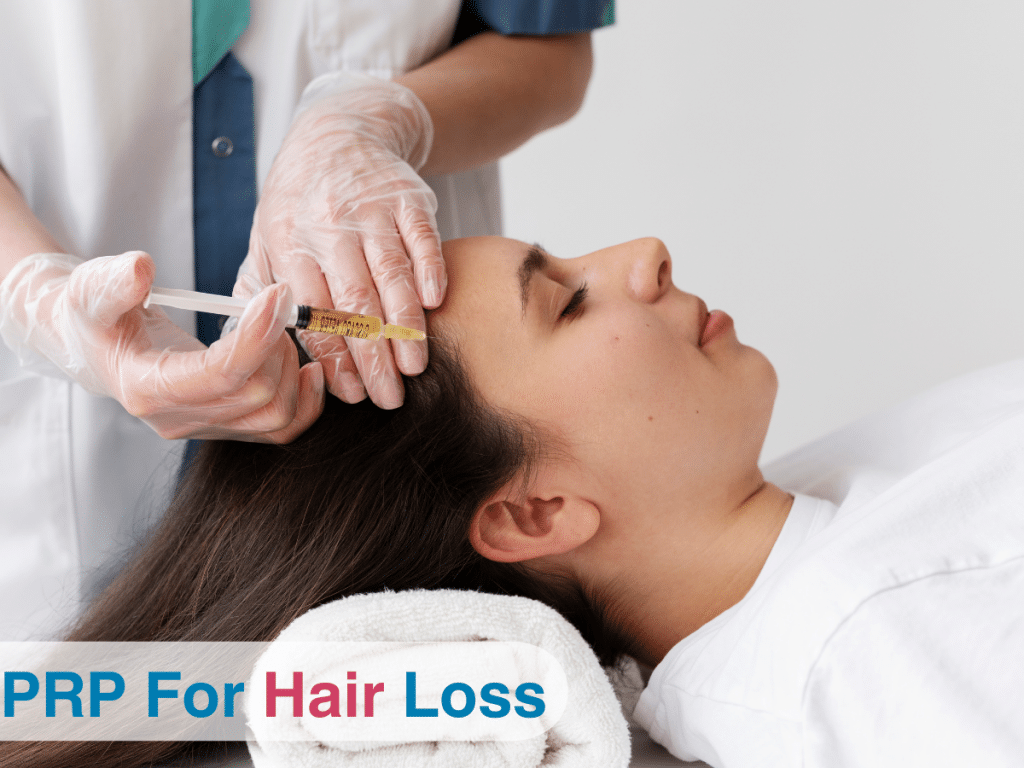
PRP For Hair Loss
BY Dr. Akansh Jain, MBBS, MD (Dermatology/DVL)
 Platelet Rich Plasma therapy, is a non invasive, permanent solution for various health conditions such as arthritis and tears or sprains in the muscle and also is proven to be effective for hair loss.
Platelet Rich Plasma therapy, is a non invasive, permanent solution for various health conditions such as arthritis and tears or sprains in the muscle and also is proven to be effective for hair loss.
The process of PRP therapy utilizes the body’s natural healing process. In this process, a concentration of platelets in your blood is injected into the area of the body to perform as a catalyst for the repairing of tissue and to enhance healing. The platelets which are found in your body are rich in growth and healing factors which means that an injured person can get back to a pain-free life in a few weeks. Many doctors have been using platelet-rich plasma therapy or PRP injections for hair growth and also to promoting tissue-healing.
Uncover the science, benefits, and side effects behind this groundbreaking treatment. Say goodbye to hair loss worries and embark on a journey to fuller, healthier hair with our comprehensive PRP guide.
PRP For Hair Loss
PRP therapy for hair loss is a medical treatment which mainly occurs in three steps where a patient’s blood is drawn, processed, and then the final step includes injecting it into the scalp. Various research studies show that PRP injections tend to trigger natural hair growth and also maintain it by increasing the blood supply to the hair follicle. This in turn increases the thickness of the hair shaft. Sometimes this approach is also combined with other hair loss procedures or medications in order to achieve healthier hair.
What are the benefits of Platelets Rich Plasma methods for Hair Loss?
- Simple and a non-surgical procedure
- Safe, reliable and early results
- Fast recovery period
- Natural looking results.
The Platelet Rich Plasma method to treat hair loss is best suited for both women and men and the result is a more fuller, healthier looking head of hair.
What are the side effects of PRP for Hair Loss?
The PRP therapy involves injecting your own blood into your scalp, so there isn’t much of a risk of getting any kind of communicable diseases as it is ultimately your blood.






